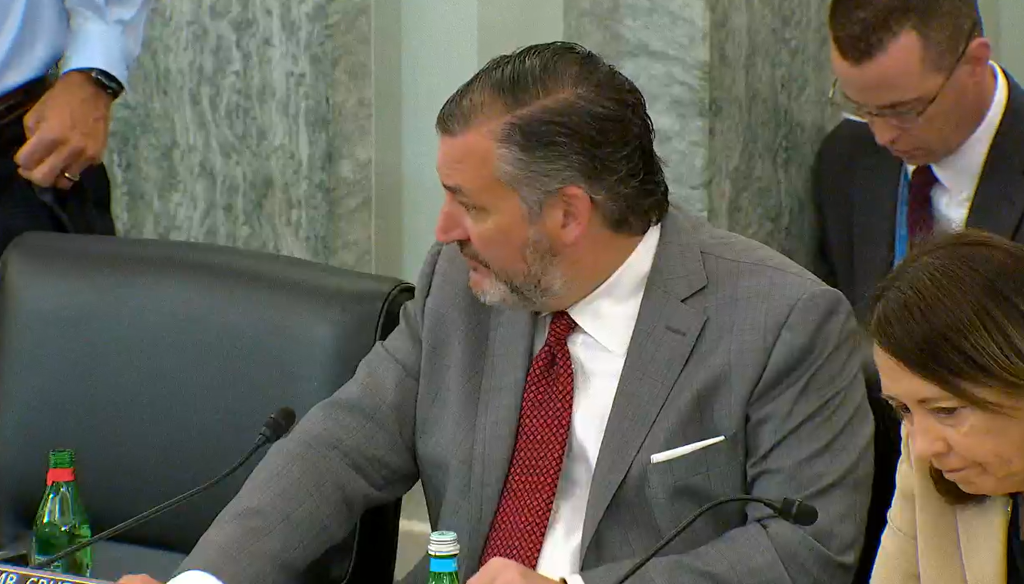Senate Committee Approves FCC Nominees, Despite Republican Opposition
Republican senators vote “no” for Starks and Gomez.
Teralyn Whipple

WASHINGTON, July 12, 2023 – The Senate Committee on Commerce, Science and Transportation voted to bring nominations for the Federal Communications Commission to a floor vote against dissent from Republican senators.
The vote considered the renomination of commissioners Brendan Carr and Geoffrey Starks as well as the nomination of Joe Biden’s pick for fifth commissioner, Democrat Anna Gomez, who currently serves as senior advisor for international information and communications policy in the State Department’s Bureau of Cyberspace and Digital Policy.
Senator Ted Cruz, R-T.X., who was the most vocal about his opposition, said he is not comfortable that Gomez possesses the “regulatory humility necessary for confirmation.” Gomez has “refused to disavow heavy-handed net neutrality rules despite privately confessing that Democrats had engaged in hyperbole in opposing the repeal.”
In a Senate hearing in June, when asked if the FCC should seek direction from Congress before addressing net neutrality — a rule barring service providers from speeding up or throttling internet traffic or giving preference to certain services — Gomez said she would like to help “with efforts towards legislation.” However, she emphasized that the FCC should have “robust” oversight over broadband internet.
According to Cruz, Gomez was noncommittal in response to requests that she improve transparency and accountability at the FCC. He is further concerned that she is engaged in content moderation on social media companies and would not oppose censorship by the FCC.
Cruz was joined by several other Republican senators, including Dan Sullivan, R-A.K., and Cynthia Lummis, R-W.Y., who recorded their votes as “no” to Gomez’s nomination.
Cruz also expressed his dissatisfaction with Democrat Starks, alleging he has “developed a record that leaves much to be desired.”
For reasons of accountability in the FCC, Cruz expressed his support for the confirmation of Fara Damelin as Inspector General of the FCC.
“I fully support confirming Brendan Carr to another term as Commissioner,” said Cruz about the Republican commissioner. “I hope that he will use his time to pursue key transparency reforms, follow the law as written by Congress, and fight waste in the Universal Service Fund.”
“The FCC is too important to be led by individuals with an appetite for overreach and with lukewarm commitments to procedural fairness and the first amendment,” he concluded.
The Competitive Carriers Association for wireless providers applauded the Senate’s action in a statement, claiming that Starks and Carr have “distinguished themselves in their service at the FCC, understanding the issues affecting competitive wireless carriers, particularly those serving smaller communities and rural parts of America.”
It added that Gomez will bring “significant public policy experience and service to a critical role.” It urged Congress to confirm the nominees as soon as possible.
FCC commissioners are appointed by the president and confirmed by the Senate. The FCC is currently party-deadlocked.
The current panel of commissioners fought claims at an oversight hearing in June that its political deadlock limits its effectiveness.
“Many have attempted to characterize the commission as deadlocked,” said FCC Commissioner Nathan Simington. “But the facts reveal the opposite: a commission laser focused on serving the public interest and faithfully implementing congressional mandates.”
“Fortunately, the lack of a full commission has not stopped the FCC from tackling important issues,” added Ranking Member of the Energy and Commerce Committee Frank Pallone, D-N.J., calling the agency’s efforts an “impressive bipartisan work.”








Member discussion